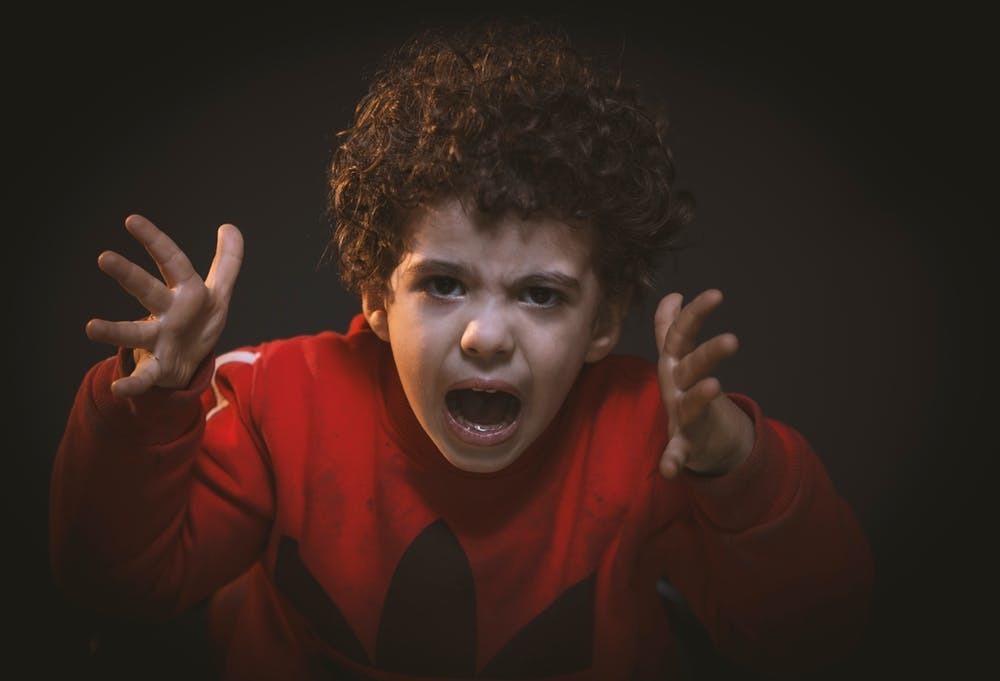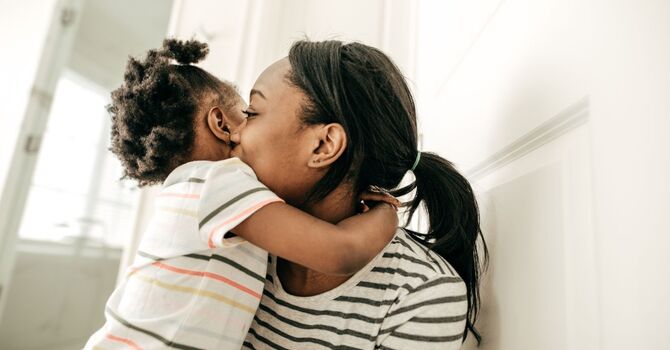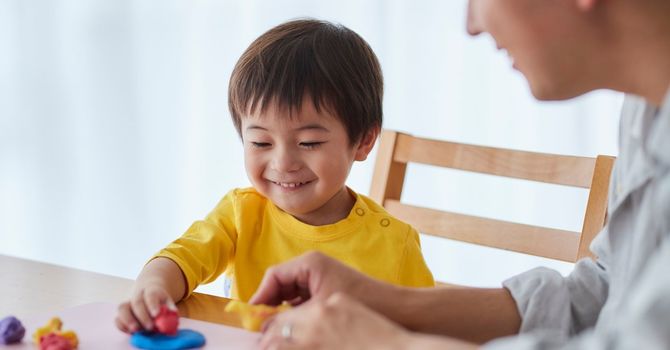By Kimberly Eckert, M.Sc., Registered Psychologist
It was a warm, sunny day, a real gift for us snowbound, housebound Canadians, and my daughter and I headed out to hang with family friends for an impromptu lunch and playdate. After Dilly Bars, scooters and running through the sprinkler, it was time to give my daughter the hard but real news that the playdate was coming to an end. This was not welcomed news and I could see that she was on the edge of losing it. So, with some wisdom, I guided her into the house so I could support her through her upset feelings. After all, I am a psychologist who specializes in child development and parenting…I teach parents all the time about the importance of accepting our children’s feelings and our need to use our relationship to guide our children through the wave of negative emotions. But what happens when we go forward with the best of intentions to support our child to express their feelings, recover, and follow through with what we have asked of them, yet they escalate further? What do we do when we try to be warm, tender and caring, and our child screams, yells and throws a royal fit (at someone else’s house, to boot)?
Standing back and reflecting on the situation is a great place to start, as this is what “good enough” parenting is all abou (perfect parents or perfect children really do not exist). As I reflect on this experience, here is what I learned:
- I don’t always guess correctly the reason my child feels upset.
- Given my profession and what I do day in and day out, I am pretty good at observing and guessing what a child needs or wants. Yet I truly believe children are wonderful, complex beings, so when I am surprised by my daughter’s concern, I realize it is about her complexity rather than my lack of skill – it is fascinating to find out how her brain ticks. Alas, please keep in mind that I most often am fascinated by this AFTER the fact, not during her meltdown! What I learned from this experience is her anger did not come just from having to leave, but also because her vision of this playdate did not match reality. She had wanted to have her friend to herself rather than share her with a neighbour who spontaneously joined the playdate. I had no clue this was what she was feeling while watching them play. In retrospect, listening to her concerns gave me great insight into what skill my daughter still needs to learn as part of being a friend – that friends are for sharing – but more on that topic on another day! My point is that I cannot forget that she is her own person, having her own experiences, and that he concerns, regardless of how skilled she is in sharing them, are valid and a wonderful roadmap for how I can support her in the future.
- Supporting my child through angry feelings is messy work.
- As parents, we love formulas and techniques. They give us an anchor in moments of uncertainty and more confidence to tackle sticky situations with our kids. Yet formulas and techniques have a dark side – we can lose sight of the child in front of us. I was struck this weekend with how essential my parenting philosophy, rather than any technique, was in helping me bob and weave my way through this angry wave with my daughter. I want to assure you that this event was hard work and messy – 16 years as a psychologist and almost 7 years as a parent did not give me magic power to make my child turn and say, “Mom, what was I thinking? You’re right, it’s time to go, it’s no big deal.” Rather, my commitment to use my relationship with my daughter and be her safe haven amidst this storm was my rock. Also, my belief that I am shaping her character for the future kept me steady and willing to stay the course (rather than parenting to get obedience in the moment to make it easier, and less embarrassing, for me). I am willing to do hard work now to help her learn how to share her angry feelings with me over time (how to do it assertively rather than with aggression), rather than buying into the belief that “she should know better” and should never lose emotional control. I know this belief has holes a mile long in it just by examining how I manage my angry feelings – yes, I am STILL learning how to stay assertive rather than aggressive or passive-aggressive when sharing my feelings (just ask my husband…he will attest to my fall back of pointing out the speck in his eye and ignoring the log in mine).
- Consequences are wonderful teachers when I don’t join my daughter and have my own meltdown.
- This is not the first meltdown I have ever experienced with my daughter and I am prepared for the fact that it won’t be the last. Yet I am very aware that I cannot ask my daughter to use her calm, strong voice to share her angry feelings (instead of yelling or using mean words) unless I am willing to hold myself to the same standard My meltdowns may not look as messy as my daughter’s but I am very aware of when I have or have not modeled assertiveness when I am feeling angry or frustrated with something my daughter is doing or saying. I have my own work to do in this area and I speak openly with my daughter about my plan for growth. My number one goal right now is to tune in and become aware of my state of mind. In my parenting class, “Raising a Secure Child,” we call this shark music (Circle of Security® – Parenting ©2009) and it has helped me to recognize that my past is colouring how I see the present. Next, given the importance of my faith, I have chosen a proverb to help me remember my parenting goal – “A gentle word turns away wrath, but a harsh word stirs up anger” (Proverbs 15:1). Literally, as my daughter was ranting and raving this weekend in someone else’s house (yes, I felt embarrassed), I kept saying over and over “gentle words Kimberly, gentle words.” My daughter received this support from me and a consequence. Yes, you can be both tender and firm – in fact, both are necessary to make our children feel safe and to build a healthy relationship with them. Did she do her best to try and talk me out of the consequence? You bet! Yet, when I wanted to say “I told you so,” I extended empathy and support so that she could see that my consequence was a loving act presented by a calm parent (again, don’t for a minute think I get this right every time – I am growing, remember!).
After two long hours, the pleading to change the consequence had stopped (told you it is messy, hard work) and my husband arrived home after four days away. My daughter went running up to him and threw her arms around him. The next part is the amazing part. I often wonder in the midst of messy moments with my daughter if my parenting philosophy is worth it – yet here is what she said to her dad: “Hi dad! Guess what? I have a consequence.” My husband very calmly inquired as to why. My soon to be 7-year-old daughter said, as if she was telling him about her favourite ice cream, “Because I had a fit,” and then she skipped away and began to play again in the yard. I smiled – a tired smile for sure as the day’s event took a lot out of me – but here was the gift – I could see how secure she felt knowing I was in charge, that I was willing to be a patient teacher (most of the time), and that our relationship could handle anger, even when it got messy. So, the answer to my question is Anger: Friend or Foe Today, friend. Tomorrow? We’ll see because my daughter and I are both still learning.
Kimberly is the Founder and Executive Director of Eckert Psychology & Education Centre. In her role as a Registered Psychologist, Kimberly provides psychoeducational assessment, counseling, and parent education services at Eckert Centre. Kimberly makes a unique contribution to the Centre through her skills in parent-child attachment, her parent education seminars, including facilitation of our Club Mom groups, and her passion and expertise in working with families who have a child with special needs.






